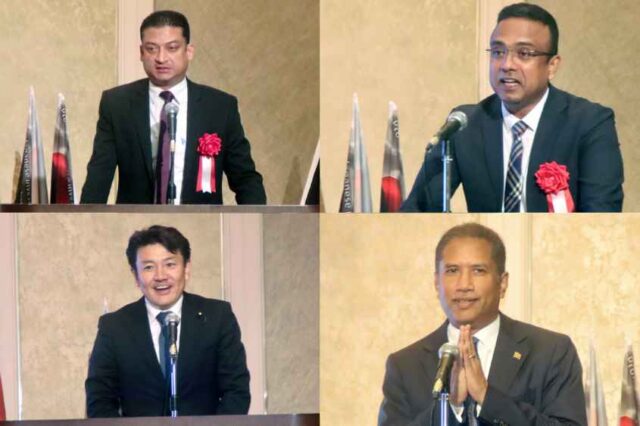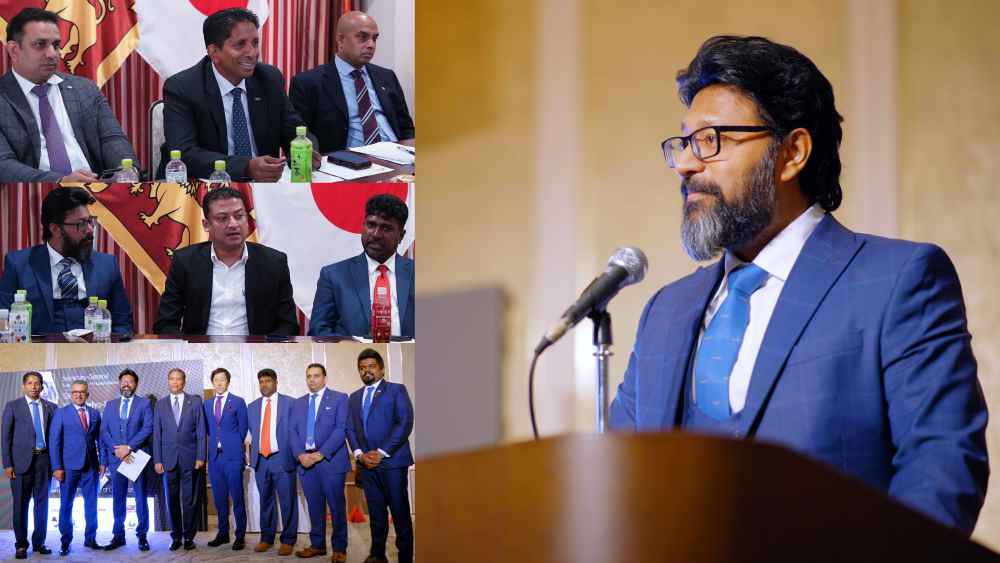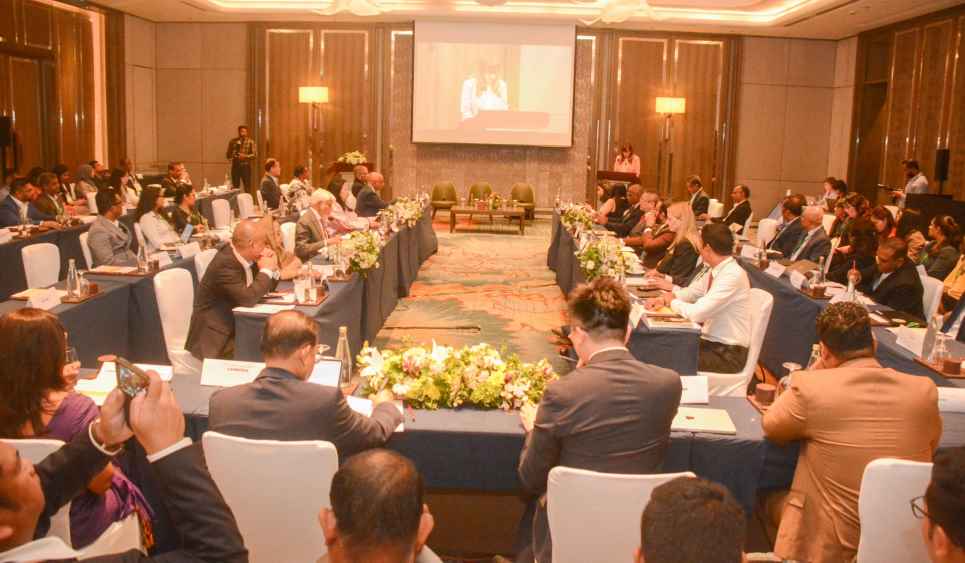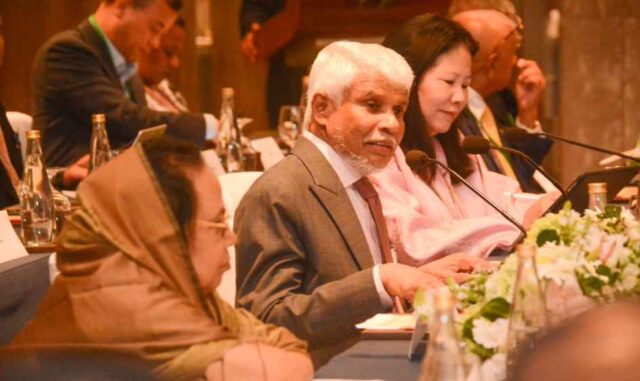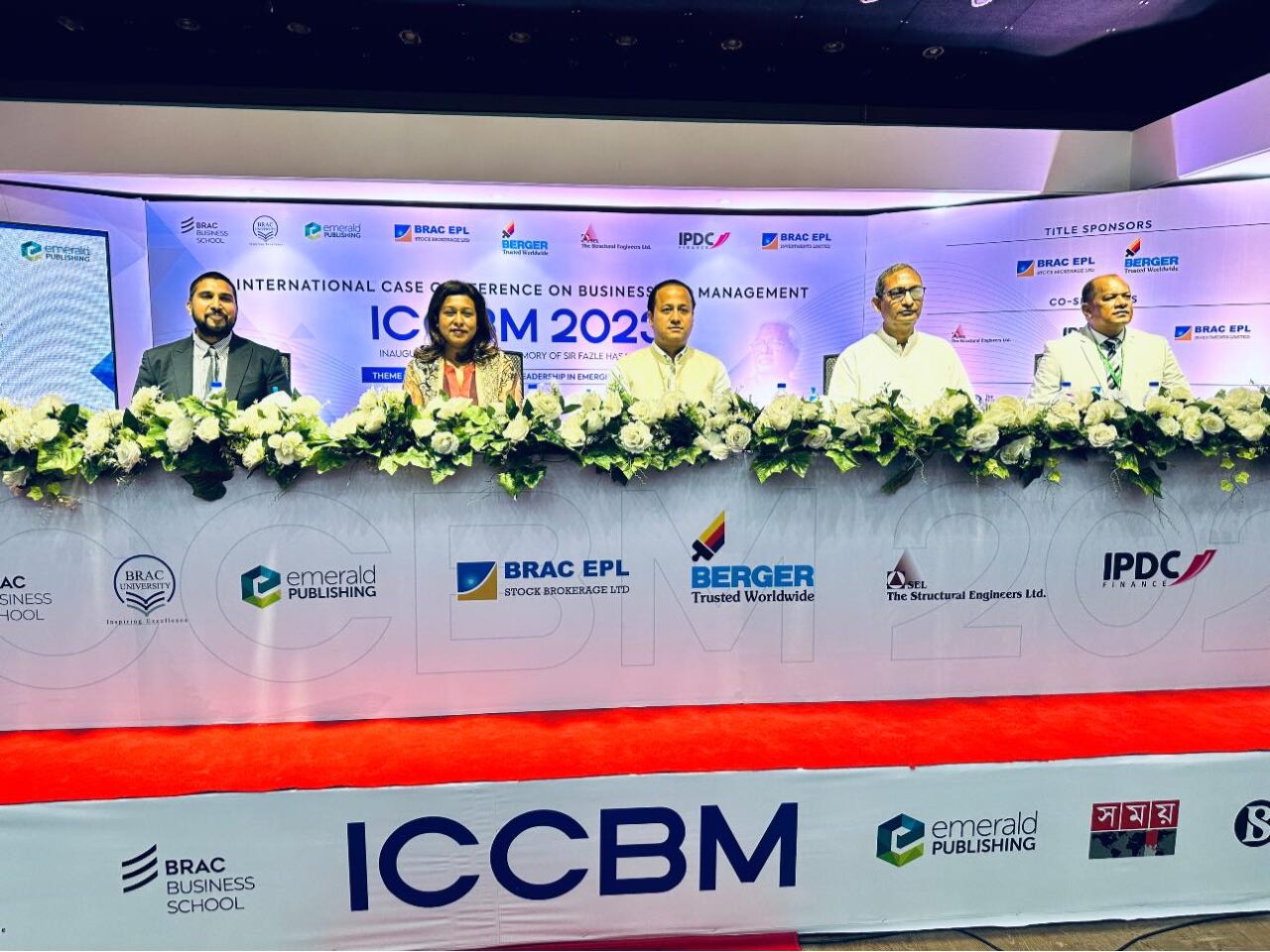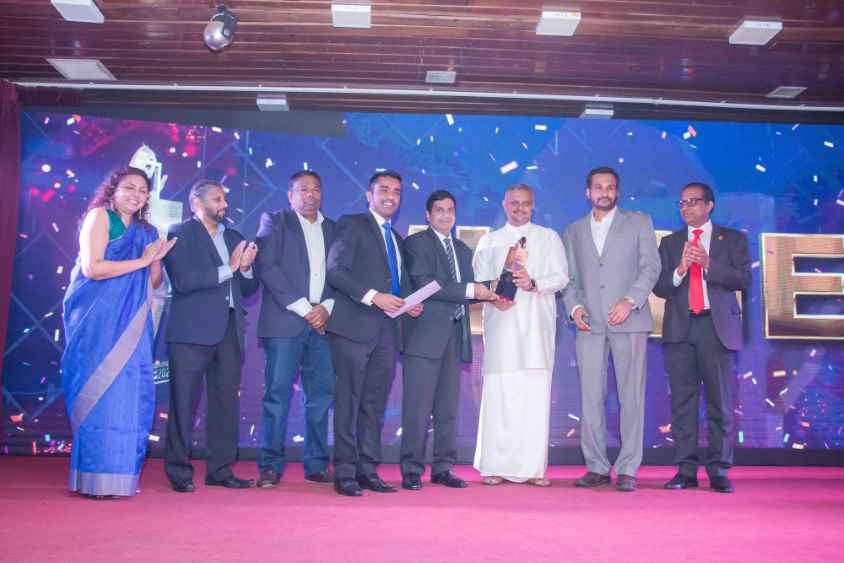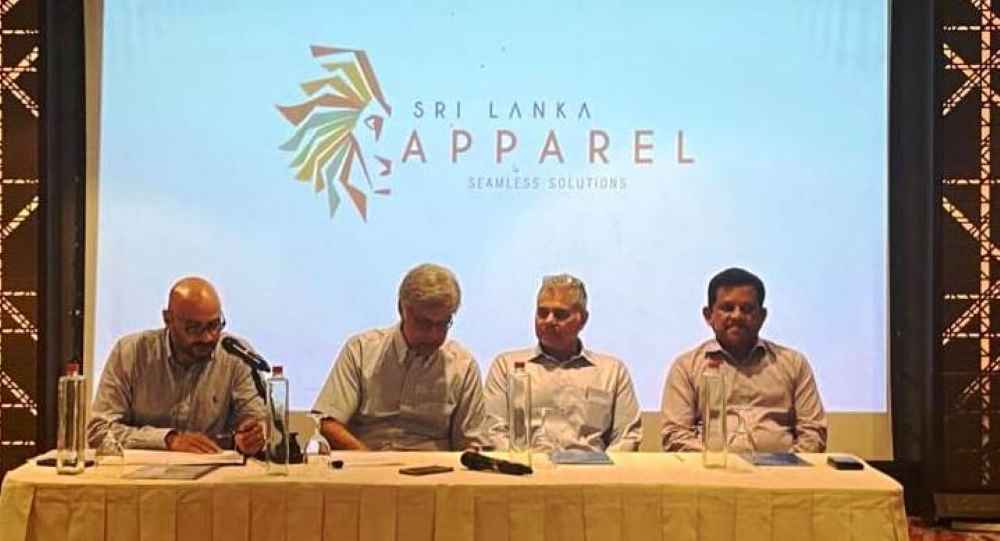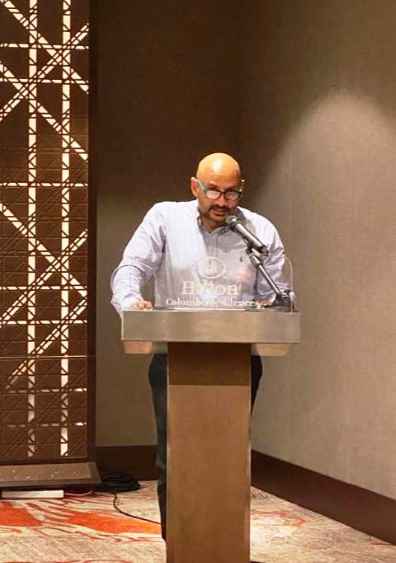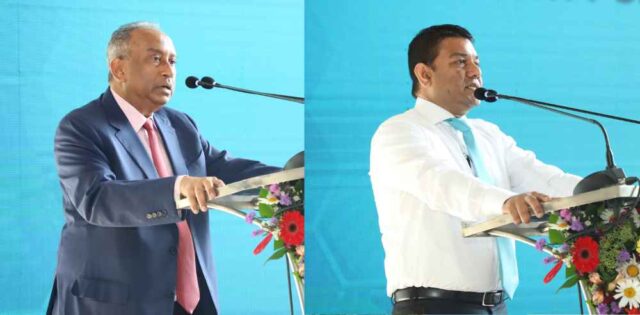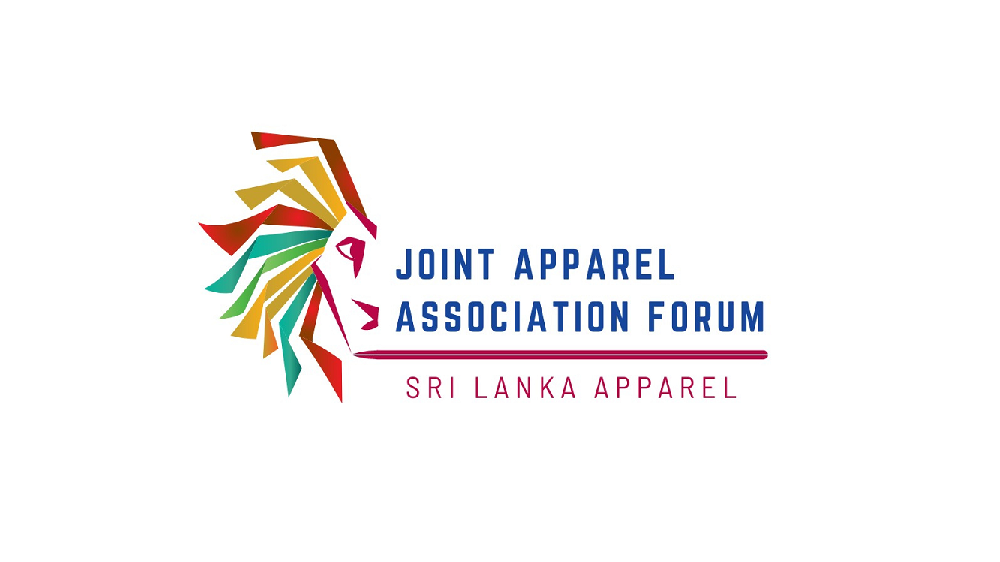- Total operating income more than doubled to Rs 138.0 Bn
- Absorbs over Rs 90 Bn in impairment
- Stellar growth of over 30% in deposits
- Stage 3 loan ratios of 3.4%; one of the best in the industry
- Strong liquidity with LAR and LCR well above statutory requirement
- Adjudged the Best Corporate Citizen in Sri Lanka 2022
Hatton National Bank PLC (HNB) demonstrated resilience and a staunch focus on sustainable business performance as it posted Rs 15.7 Bn in Group Profit After Tax during 2022, a year marked by extraordinary circumstances and challenges.
Chairperson of HNB PLC, Aruni Goonetilleke commented that, “The year under review was unprecedented, with a combination of economic stress, social unrest, and political instability which resulted in systemic shocks affecting all Sri Lankans and sectors of the economy and the banking industry in particular. Consequently, HNB remained vigilant, carefully recalibrating its priorities to maintain stability whilst supporting customers and keeping stakeholders closely engaged as the crisis unfolded. This focus is clearly affirmed by our performance”. She thanked the Board for its strong leadership and conveyed the Board’s appreciated of the HNB Team’s commitment and contribution to the solid performance despite personal challenges and hardships. The Board also thanks all its customers and stakeholders for their support and confidence during a very challenging year and looked forward to their continued support in 2023.
She added that “Every crisis is an opportunity for positive change and Sri Lanka’s economic crisis is no different. Banks play a critical role in the country’s efforts to move beyond the current crisis mode to a growth mode and HNB is leading the way in unleashing potential with appropriate checks and balances.”
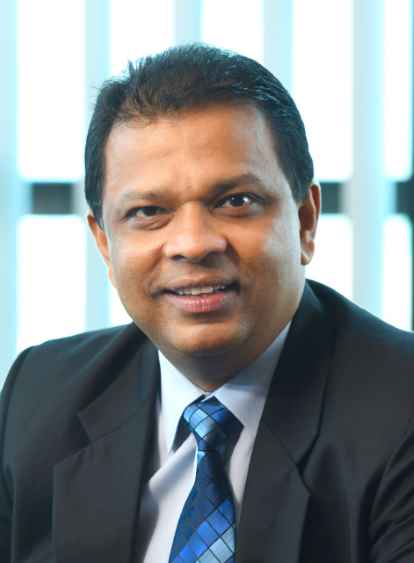
The Bank’s interest income increased by 110.0% YoY to Rs 207.0 Bn, primarily due to the increase in average AWPLR during the year by over 14 percentage points, consequent to the Central Bank’s restrictive monetary policy to arrest the inflationary pressure in the economy. Interest expense also grew at a similar rate as the high interest rates resulted in an industry wide shift from CASA to term deposits. The resultant net interest income expanded by 107.6% YoY to Rs 102.9 Bn.
The Bank’s net fee and commission income grew by 57.7% YoY to Rs 15.2 Bn driven by higher credit card volumes and trade income. Exchange income also improved significantly as the rupee depreciated by nearly 80% during the year. However, the exchange impact of impairment provisions on foreign currency loans and investments amounting to Rs 12.3 Bn was offset against the exchange gains. Consequently, the non-interest income increased to Rs 35 Bn from Rs 16.2 Bn by 117%.
Concerted efforts on supporting our customers to revive their businesses and proactive recovery initiatives enabled the Bank to maintain its Stage III loan ratio at 3.4% as at end of 2022. Factoring in the economic stress the Bank proactively increased its credit related impairments by 168% to Rs 31.2 Bn for the year compared to Rs 11.7 Bn in 2021.
Pursuant to the announcement on suspending repayment of foreign currency debt by the government of Sri Lanka, HNB on a prudent basis recognized an impairment charge of Rs 59 Bn in 2022 on account of its investments in foreign currency denominated government securities. Accordingly, the total impairment charge for the year increased to Rs 90 Bn by nearly five folds.
HNB’s total operating expenses recorded an increase of 34.3% for the year. However, the operating expenses for 2021 included a reversal of Rs 2.2 Bn on account of provisions made on pension and retirement benefits with the extension of retirement age to 60 years. Excluding this impact, the Bank’s operating expenses recorded an increase of 22%, in the backdrop of inflation peaking at over 70% in September 2022. Despite costs increasing, the cost to income ratio Improved to 22.0% compared to 34.4% recorded 2021, as total operating income improved at a much higher rate of 109.8% during the year.
Bank’s standard tax rate increased from 24.0% to 30.0% during the year, and a newly implemented Social Security Contribution Levy of 2.5% came in to effect, while VAT on financial services increased from 15.0% to 18.0% w.e.f. 1st January 2022. Increase in deferred tax asset as a result of change in corporate tax rate to 30% and substantial impairment charges recognized along with the reversal of previous years’ tax provisions with the settlement of past tax assessments, the Bank recognised a tax credit of Rs 2 Bn for the current year.
The Bank recorded a Profit After Tax of Rs 14.0 Bn compared to Rs 17.3 Bn recorded in 2021 while the Group recorded a PAT of Rs 15.7 Bn compared to Rs 20 Bn in 2021. This resulted in a ROA of 0.9% and a ROE of 9% for the Bank. The Board of Directors of the Bank has proposed a final dividend of Rs 5.00 per share in the form of a scrip dividend for both voting and non-voting shares.
Commenting on the performance, Jonathan Alles, Managing Director / Chief Executive Officer of HNB PLC. stated that “following the Easter Sunday attacks in 2019 and two years of the pandemic, year 2022 saw a series of extraordinary events unfolding. Suspension of external debt repayments, sovereign downgrades, significant rupee devaluation, increase in interest rates to 30% level subsequent to policy rate hikes to curb rising inflation, followed by power disruptions and fuel shortages, led to social unrest and political instability. Although the situation has stabilized since, it added significant pressure on asset quality, liquidity and capital levels of the banking sector
“We saw the need to reprioritize our strategies to address the crisis in hand. Our actions in terms of supporting business revival and tightening our underwriting standards, have enabled us to maintain one of the best stage III ratios in the industry. While we were restricted in supporting our customers with their imports during the height of the foreign exchange shortages, we prioritized essential medicine, food, gas imports and education related payments. The situation has improved today and this is demonstrated in our liquidity levels which are above the minimum requirements.”
MD/CEO further added that, “we are proud to be the Best Corporate Citizen in Sri Lanka in 2022. Winning this award in a year in which Sri Lanka went through multiple crises affirms that HNB stepped up to play our part as a responsible corporate citizen. This was not by chance but by deliberate strategy that was aligned to meet the urgent needs of the Country, the most vulnerable people and the businesses. In this journey, our people, , have faced many hardships in delivering our promise to customers and other stakeholders. I’m very grateful to the entire team for their untiring efforts in continuously raising the bar for HNB.”
“We remain hopeful that IMF board approval would be finalized soon, boosting investor confidence. In our path to recovery, we will continue to standby our customers and support the important sectors of the economy in delivering sustainable value to all our stakeholders”.
The Bank’s asset base expanded by 24.5% to Rs 1.7 Tn during the year, with loans and advances growing by 14.3% to Rs 1.1 Trillion. The growth was partly due to the devaluation of the rupee during the period and excluding this the growth was limited to 6% as the Bank adopted a cautious approach towards lending especially during the second half of the year. Total deposits of the Bank grew by 31% to Rs 1.4 Tn during the year, complementing Bank’s strategy of improving liquidity in the face of the crisis. Although this was partly supported by the rupee devaluation, LKR deposits saw a significant growth of Rs 191 Bn demonstrating the confidence placed by our customers.
The Bank reported Tier I and Total Capital Adequacy Ratios of 11.06% and 14.0% respectively against the minimum requirement of 9.5% and 13.5% respectively. The Central Bank permitted licensed commercial banks to drawdown up to 250 bps on the capital conservation buffer effectively lowering the requirement to 7% and 11% respectively. Furthermore, the Bank’s liquidity position further strengthened with liquid asset ratio and all currency liquidity coverage ratio at 34.0% and 519.5%, against the statutory requirements of 20% and 90% respectively.
HNB was awarded as the “Best Corporate Citizen for 2022” by the Ceylon Chamber of Commerce for the leadership in sustainability, governance and excellence. Furthermore, HNB was ranked among the Top 1,000 Banks in the World for the sixth consecutive years by the acclaimed UK based ‘The Banker Magazine’ while being adjudged the ‘Best Retail Bank in Sri Lanka’ by the Asian Banker Magazine for the 12th time.
